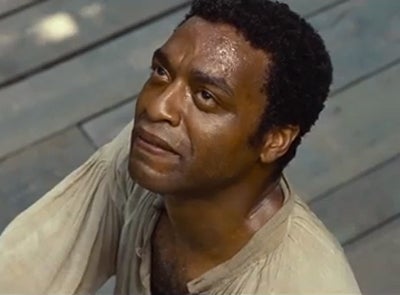
Every few years, a movie comes out that makes people stop dead in their tracks, 12 Years A Slave is one of those films. By now you’ve read the rave reviews, and perhaps you’ve been lucky enough to see it. For those who haven’t either because you’ve been too busy or it hasn’t opened near you yet, I implore you to see it as soon as you can. There are numerous reasons why I think it is important to support this film, but among the most compelling reasons is that finally, we have a movie on the big screen about slavery told from the perspective of the actual slave, and not the (usually) white man who comes to his aid. That might seem like a trivial point, but given our country’s desire to either sweep all race conversations under the rug or water it down as to not offend, it is not.
There have been plenty of movies about slavery—some good, some OK, some terrible. In recent years, they generally seem to gloss over the worst aspects of the “peculiar institution” and often are more about those who never actually experienced the brutality themselves. Now, that’s not to say that those stories shouldn’t be told: they should! I’ve written before about my love of Django Unchained and how I didn’t buy argument that Tarantino shouldn’t be allowed to tell his fanciful tale of slave revenge; much like how I don’t hate on Lena Dunham for telling a story of four friends living in Brooklyn that seemingly never interact with any people of color. If that was her experience and she wants to tell it, good for her.
But there should also be a space for other stories and perspectives to be told. We have proven over and over again that here is an audience and a hunger for these types of movies with our wallets. Yet diversity on screen, behind the camera or computer screen still lags. And when it comes to stories about or that took place during slavery, the disparities are even more obvious. Again, taking nothing away from these great movies, but Lincoln, Amistad, Django and countless others all relegated slaves or slavery to the background or as supporting characters to the white protagonist. And that is why 12 Years A Slave is such a unique and special movie. Not only was it a story told from the point of view of the slave Solomon Northrup, based off his own memoirs. The screenplay was written by a Black man and directed by one as well.
As our nation becomes more diverse, it’s important that our institutions and industries represent their customers and consumers. The movie industry has famously had its problems with diversity, and that’s why a movie like this is even more remarkable. We need more people like Brad Pitt who are willing to invest their money in projects that usually scare off big studios. And while you could argue that Pitt and others are simply making a wise business move and will no doubt make their money back, that isn’t always the case. With a topic as controversial as slavery, especially one depicted so honestly, there was no guarantee that Pitt would make his money back. Lucky for him, he was blessed with having great source material, a fantastic screenwriter, director and actors.
But as much praise as this movie gets, what matters most to studios is the bottom line—they are a business after all. That’s why it is important to support films like this when they open. If we want to see more films like 12 Years a Slave, we have to prove that there is a market for them by actually showing up and spending money. The more that happens, the more these movies will get made, and I won’t have to keep writing articles about this.




